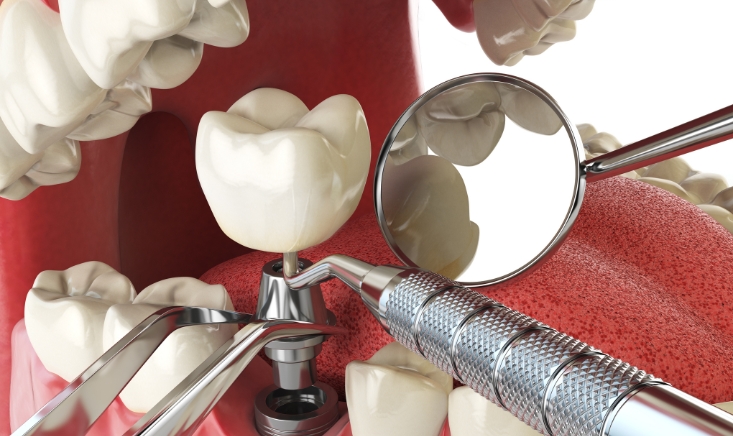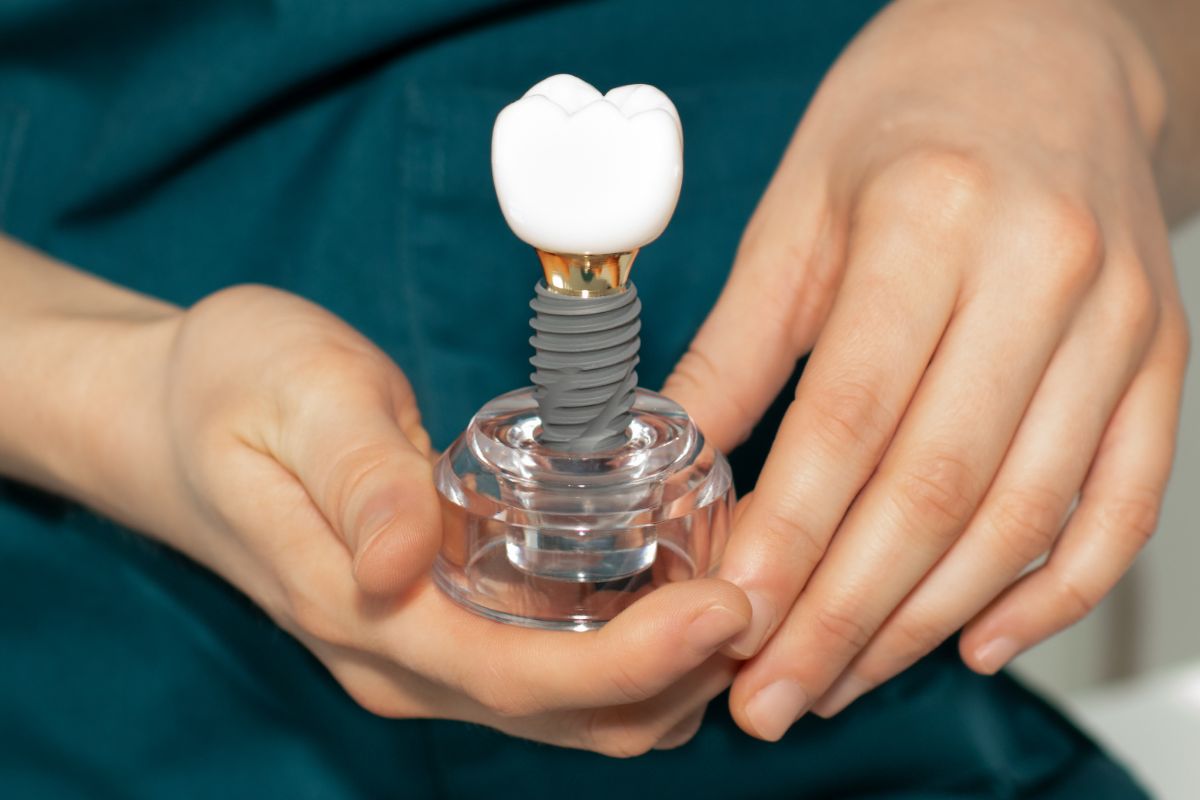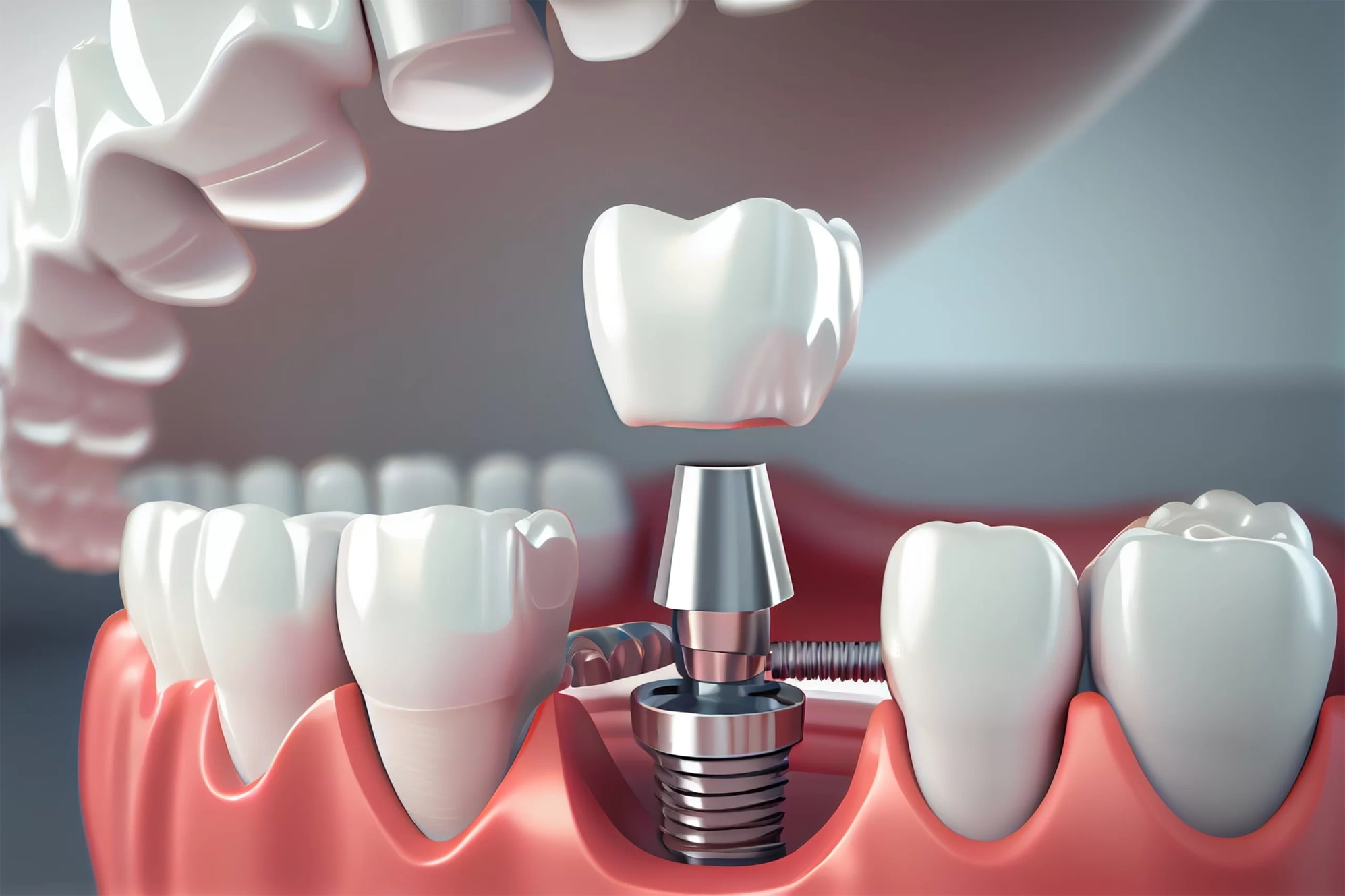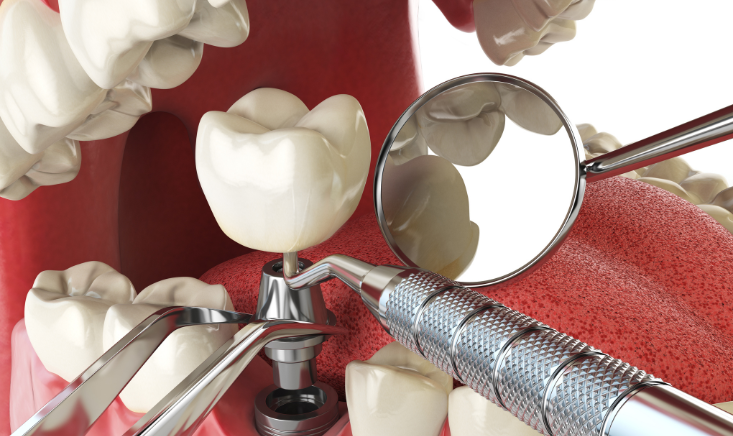We are not a registered Medicare/Medicaid Provider
How Long Do Dental Implants Last?

Dental implants are an excellent solution for missing teeth. They offer a permanent, durable option that closely resembles natural teeth. However, many people wonder: How long do dental implants last? The answer depends on various factors, such as the materials used, the implant’s placement, and how well you maintain your oral health.
The Lifespan of Dental Implants
On average, dental implants in Denville can last 25 to 30 years, or even a lifetime, with proper care. Unlike dentures or bridges, which may need to be replaced every few years, dental implants are designed to be permanent. The key to their longevity lies in the titanium post, which fuses to the jawbone. This process, known as osseointegration, ensures the implant remains secure for years.
Factors That Affect the Longevity of Dental Implants
Several factors influence the lifespan of dental implants. Firstly, the quality of your oral hygiene plays a crucial role. If you neglect brushing and flossing, plaque can build up around the implant, leading to infections. Infections can cause the implant to fail over time.
Another factor is the condition of your jawbone. For a successful dental implant, a healthy jawbone supporting the titanium post is essential. If you have bone loss, a bone graft might be required before implant placement to help ensure the longevity of the implant.
The materials used for dental implants also impact their lifespan. Titanium is the most common material, and it is highly durable. However, advancements in implant technology have introduced other materials like zirconia. Both materials are biocompatible, meaning they integrate well with the bone.
Lastly, habits like smoking and excessive alcohol consumption can impact the success of dental implants. Smoking impairs healing, while alcohol can slow down the regeneration of bone tissue, affecting the implant’s stability.
The Importance of Regular Dental Check-Ups
Routine dental check-ups are vital for maintaining the health of your dental implants. During these visits, your dentist will check for any signs of complications, such as infection or bone loss. Regular cleaning and professional assessments ensure that any issues are addressed early, which helps extend the implant’s life.
Caring for Dental Implants to Extend Their Lifespan
Proper care is essential for ensuring your dental implants last as long as possible. Daily brushing and flossing are crucial for maintaining healthy gums around the implant. Additionally, using an antimicrobial mouthwash can help reduce the risk of infection.
It’s also important to avoid chewing hard objects, such as ice or pens, as this can damage the implant or crown. If you grind your teeth, wearing a night guard can protect your implants from unnecessary stress.
Lastly, follow your dentist’s advice regarding diet and habits. They may recommend avoiding certain foods that could harm your implants. Adhering to these guidelines ensures that your dental implants remain strong and functional for many years.
When to Seek Professional Help
Even with proper care, there may come a time when your implant needs attention. You must see your dentist immediately if you notice any pain, swelling, gum infections, or unusual movement in your implant. Early intervention can prevent further complications and protect the investment you’ve made in your dental implants.
Ensuring Longevity: Tips to Maximize the Life of Your Dental Implants
Dental implants are a long-lasting solution for replacing missing teeth. They can last for decades, even a lifetime, with proper care and regular check-ups. Factors such as oral hygiene, the condition of your jawbone, and lifestyle choices all play a role in determining how long your implants will last. Following your dentist’s instructions and maintaining a healthy lifestyle, you can enjoy a confident smile with dental implants for many years.


